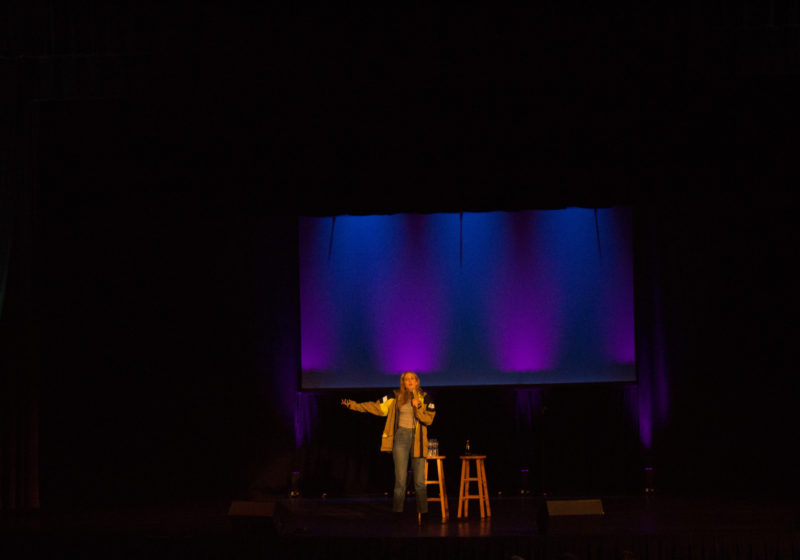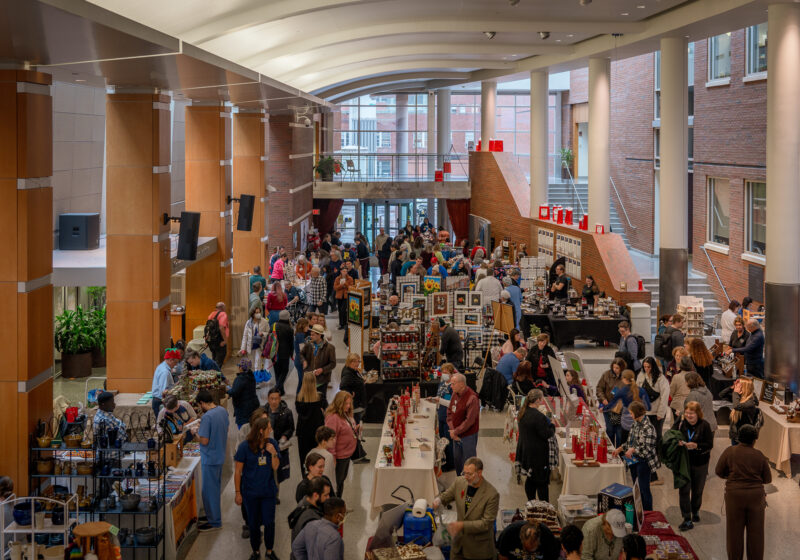From a distance, it looks like the same old story — the callous comedian triggers the politically correct college students. But in the wake of Nikki Glaser’s Feb. 1 Winterfest performance, perspectives from both sides reveal a more complex divide.
The joke in question centered around the idea that “people who have been molested are so much cooler.” At one point, Glaser joked that she wished she had been molested so she could talk about it. Some students walked out of the performance, and many discussed their distaste for the bit on social media.
“This is why no comedians want to perform at colleges anymore,” Glaser told the Campus Times via Instagram message. But while college students are often accused of being over-sensitive, students who objected to the joke said it wasn’t because of the topic.
“I just didn’t understand what was supposed to be the funny part,” senior Svarina Karwanyun said, later adding that the joke caused her to leave the show.
“Everyone was waiting for the joke to land so they could tell if it was okay or not,” Karwanyun said. “I think it was just a collective cringe.”
A few days later, student committee It’s On Us, which advocates against sex-based misconduct, released a statement on Instagram. They denounced the joke as “inappropriate,” and promoting “toxic rape culture,” and shared support resources for those who might have been triggered.
“There is a very big difference [between] making a joke about a topic, and then making a statement that you want to be assaulted without the consideration of the millions of people that that affects all the time,” said senior and It’s on Us co-chair Isabella Leighton.
“Our purpose was to make sure people remembered that that is not our school culture, that is not what we’re about.”
When tagged in senior Victoria Nieto’s Instagram story alongside the post, Glaser messaged the student: “Give me a break.”
“The joke was that people who have been molested tend to be more interesting because they’ve had to persevere past such a terrible thing,” Glaser told CT. “If anything I’m standing up for victims saying that you are cooler and a better person because of what happened to you.”
Glaser characterized the backlash as an overreaction to a harmless joke.
“I used to love colleges because the youth are plugged in and more excited for you to take chances,” Glaser wrote, “and now it turns into me having to do an interview to defend jokes that aren’t some political statement I’m making. I’m not running for office. None of my views will affect laws on campus. Leave my show if you don’t like it.”
Sophomore Zophia Dadlez did just that, she said, to show solidarity with anyone hurt by the comments, and help them leave without being singled out. Dadlez also tagged Glaser on Instagram, to which Glaser responded in part: “If someone needed therapy after my show then perhaps they needed it anyways and good for me that I got them in it.”
Glaser added that regardless of whether she had been molested or not, she is allowed to comment on the issue. Junior and It’s On Us co-chair Nivi Iyer agreed that no topics should be off the table, but said that comedians need to be thoughtful of others and of their own privilege.
“I think there is a way to make jokes about situations like these that are sensitive to the needs of people that go through them,” Iyer said. “Jokes that align themselves with the perpetrator are not okay because they promote rape culture.”
Glaser said comedy should not be an issue of privilege — “Would it be okay if I made this joke if I were molested? Why would that make it okay?” — and that her goal was to make people feel less alone.
“If I don’t talk about molestation and we can only talk about it under this guise of ‘it’s a terrible thing and oh the suffering,’” she wrote, “then people keep these things a deep dark secret, people don’t feel as open to talk about these things and they suffer with them alone.”
According to Leighton, It’s on Us has begun talking to student government officials to discuss how this can be prevented in future. While it’s too early to say what will happen next, Leighton said she hopes to make it possible for future campus performers to be briefed on UR’s values and culture so they can keep them in mind.
Glaser said she will continue telling the joke.
Correction (2/13/2020): A previous version of this article incorrectly referred to Victoria Nieto as a sophomore instead of as a senior.





